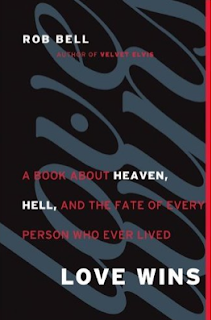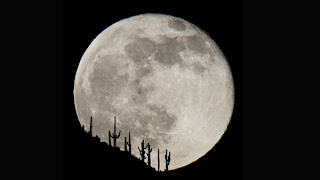On top of the other things I'm writing about (e.g., my ongoing series on the Slavery of Death) I thought it time to write a bit about Rob Bell's book Love Wins.
Perhaps you've heard of it?
As most of you are aware, the publication of Rob Bell's Love Wins kicked up a storm of controversy and discussion. Some of it started immediately when the promotional video first hit the Internet.
LOVE WINS. from Rob Bell on Vimeo.
At the height of the controversy a few readers asked me to weigh in. I demurred. It seemed that a lot of the discussion at the time was among evangelicals trying to sort themselves out and, given that I didn't have a dog in that hunt, I didn't want to contribute to the noise. But now that some of the smoke has cleared I thought I'd spend some time working through the book.
To start, my plan is to write a post about each chapter, starting in this post with the Preface. But this won't be a book review. Mainly all I want to do is pick something out of each chapter that I find interesting, either because I agree with it, disagree with it, or simply find the point to be worthy of thinking about.
But if you care about my overall impression of
Love Wins here it is: I think the book is very helpful and useful. For this reason. Prior to
Love Wins there weren't many good "first book off the shelf" choices for those of us wanting to hand reading material to people coming to us with questions and concerns about the traditional doctrine of hell. When people came to us asking questions our first response was often "Have you read C.S. Lewis'
The Great Divorce?" That wasn't a bad recommendation as
The Great Divorce is easy to read and it does expand one's theological imagination. Which, to start, is what a lot of people need. But
The Great Divorce isn't for everyone. It's kind of an odd story and a lot of people have trouble working out the implicit theology in light of the biblical narrative. (Kind of how many evangelicals miss the
Christus Victor atonement in
The Lion, the Witch and the Wardrobe.)
Beyond
The Great Divorce sometimes I would recommend George MacDonald's
Unspoken Sermons. But MacDonald's prose isn't easy. More recently I've been recommending
The Evangelical Universalist or
The Inescapable Love of God. But those two books are a bit too polemical for a person just starting to ask questions.
In short, as best I could tell there wasn't a good book out there that fit this very important niche. What did you reach for when someone came to you with troubling questions about hell? Nothing really recommended itself. But now I can hand over a copy of
Love Wins and say, "Start here. If you like this I can point you in different directions if you want to go deeper." And that further exploration doesn't have to be into universalism. I could be about annihilationism or a deeper exploration into the history and meanings of
Sheol and
Gehenna.
So that's my overall assessment.
Love Wins a wonderful read for those just starting to ask questions or for those whose faith is starting to falter, quite understandably, due to the traditional doctrine of hell.
With that out of the way, let's start with the Preface of the book entitled "Millions of Us." The quote from the Preface that I'd like to focus on is this:
Some communities don't permit open, honest inquiry about the things that matter most. Lots of people have voiced a concern, expressed a doubt, or raised a question, only to be told by their family, church, friends, or tribe: "We don't discuss those things here."
I don't care what you think about
Love Wins, but I think Bell is spot on with this particular assessment. Too many churches say to their members, and their young people in particular, "We don't discuss those things here." And I think the younger generation has had just about enough of this sort of thing. And I'm quite tired of it as well.
A lot people smacked
Love Wins because it raised more questions than answers. But truth be told, I think that is sort of the point. I sure as hell have more questions than answers. (Was that a pun?) So I appreciate Bell raising the questions and giving voice to them. That's the sort of book a lot of people need. They need permission to ask questions. Hence the title of the Preface, "Millions of Us." You are not alone in your doubts. You're not faithless, weird, or strange. There are millions of us.
I could go on and on about this, but let me just end with a story.
A few years ago I was teaching in my adult bible class at the Highland Church of Christ. I was doing a lesson on doubt. I started with this question, "Have you ever had doubts? If so, let's share them as I write them on the board." It was quiet at first, but then the responses flowed out...
I've doubted that God exists...
I've doubted that God really cares...
I've doubted that prayers make any difference...
I've doubted that there is a heaven after death...
So many doubts came out that I filled the board and it took all of the class time. After class I worried. I thought the class had gone really badly. I mean, all we did for the entire class was to list our doubts and put them on the board. There was no time for a "positive" response. No pretty bow affixed. No "take home point" or encouraging application. Just one long list of doubts.
A few days later a faculty friend and member of the Highland class shared with me this story. Apparently, a prospective ACU student, a highschooler, was visiting Highland with his parents on Sunday and had wandered into my doubt class. Hearing this, I inwardly groaned. I was sure the next part of the story was going to be the parents blasting me for destroying the faith or their son. But this is what the parents said to my friend: "When you see him, please tell Dr. Beck how important that class was for our son. It just might have saved his faith. He had been struggling with church for some time, but that class opened his eyes. Never in his life had he heard an adult admit to doubting God. Consequently, he felt he was strange and that religion wasn't for him. He felt alone, like no one understood what he was feeling and thinking. But hearing all those adults sharing their doubts made him realize that it was okay to doubt and that he really does fit in at church."
Yes, there are millions of us.
 After raising a lot of questions in Chapter 1 of Love Wins Rob Bell turns to a discussion of heaven in Chapter 2.
After raising a lot of questions in Chapter 1 of Love Wins Rob Bell turns to a discussion of heaven in Chapter 2.















